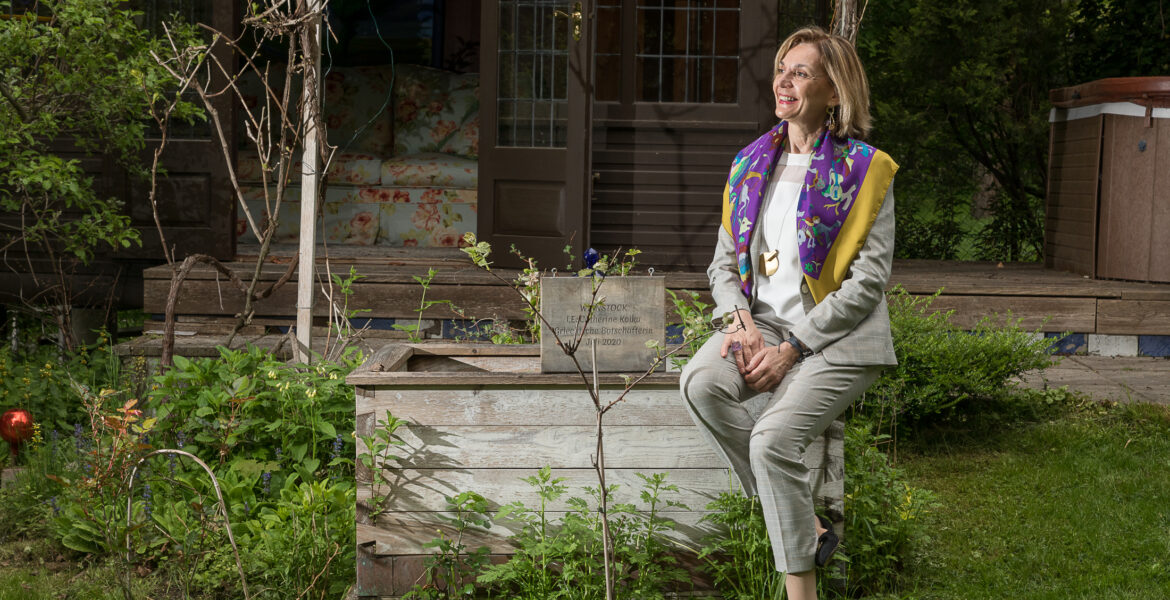Society Magazine spoke with the Greek Ambassador to Austria, H.E. Catherine Koika about present challenges, the European Union and future plans.
Europe and the whole world is facing a number of challenges at the moment. How do you think the current situation will influence the present world order in the long term? Which place might Greece take in this?
The raging war in Ukraine has proved that the long-standing peace and prosperity achieved in the European continent after the World War II through the concept and the creation of the European Union cannot be taken for granted. What is at stake for Europe and for the whole world, at this difficult period, is the unconditional respect of the International Law, which preserves the independence, sovereignty and territorial integrity of every country.
Greece has always followed a foreign policy based on the International Law and its norms. Our position could not be different in the case of a country, Ukraine, which is sustaining the unprovoked und unjustified military aggression of another country, Russia, and is striving for its own existence, freedom and the right to choose its own future.
As has always been the case, it is sure that Greece will continue to stand for the supremacy and the prevailing of the ideal of democracy as well as of the International Law and the principles it enshrines.
How could this also influence the meaning/significance of the European Union?
As I mentioned previously, the European Union has been the most important political and economic endeavour of the post WWII Europe, which ensured continuous peace and prosperity in this continent for almost eight decades.
The fact that all the member states, in spite of certain differences of opinion and attitude, joined their forces for a common response to the Ukrainian crisis, proves that the EU possesses a great power to achieve its goals.
Solidarity and unity among the EU member states, which has also been proved recently during such unprecedented global challenges as the economic crisis and the COVID pandemic, are the key elements to face the current situation in our close neighborhood.
In ancient Greek there is a saying: “η ισχύς εν τη ενώσει”, meaning that power lies in the unity. This is true in times of crises; this is true now, more than ever, for the European Union itself.
What will be the key “working areas” of Europe?
It is high time for the European Union to cement its own future, to rise to its great geopolitical role. A big step forward was made recently with the adoption of the Strategic Compass for the strengthening of the European security and defense policy.
The independence of the EU in the energy field is also of primary importance and it constitutes another pivotal aspect for the consolidation of the European strategic autonomy, now more necessary than ever before.
Achievements such as the Recovery Fund, which would be unthinkable some years ago and show how important the European solidarity is, must continue to exist and be used as tools for future crises.
The migration issue is always a source of concern for our continent and in particular for countries like Greece that protect the external borders of the EU. It is necessary to achieve headway at the discussed European Pact for Migration and Asylum, which needs to be based on the principles of solidarity and shared responsibility.
Moreover, it goes without saying that the enlargement of the EU to the Western Balkans, and, in this context, the European integration procedure of the countries of that region remains always a priority, particularly in the current challenges our continent is facing.
Last but not least, the European efforts in the fight against the climate change have to continue even more intensively. Initiatives such as Fit for 55 must bear their much expected fruit, for the benefit of our planet and of future generations of the humankind.
In your opinion, which role can or will diplomacy play in this context?
As in every context, also in the European one, the mission of diplomacy is to act as a bridge-builder between different approaches, attitudes and diverse opinions of the various sides, having always as ultimate goal the progress in various issues of national and international concern to the benefit of the interests of the respective country or of an International Organization. The same goes for the European affairs.
Diplomacy can contribute to “more Europe”, namely more peace, more stability, progress and prosperity of our continent and its peoples through their unity and solidarity, as I have already mentioned. After all, what is good for Europe is good for Greece and for every country that makes part of it.
Fotos: Society/

